Julia sets
If there's a Mandelbrot, there should be a Julia set too.
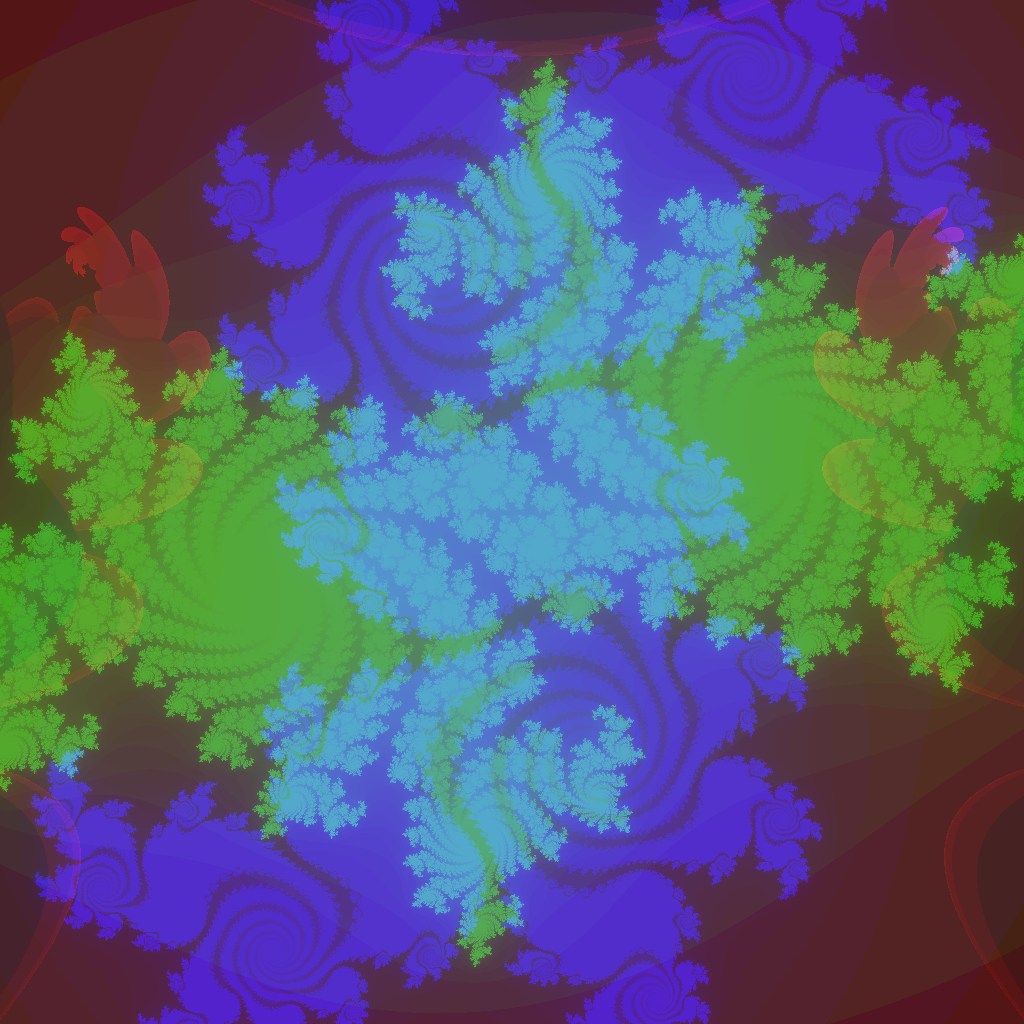
You can spend hours tweaking the parameters and functions, so this is just a quick one that looks decent.
Inspired from Martin's participation.
unsigned short red_fn(int i, int j){
#define D(x) (x-DIM/2.)/(DIM/2.)
float x=D(i),y=D(j),X,Y,n=0;while(n++<200&&(X=x*x)+(Y=y*y)<4){x=X-Y+.36237;y=2*x*y+.32;}return log(n)*256;}
unsigned short green_fn(int i, int j){
float x=D(i),y=D(j),X,Y,n=0;while(n++<200&&(x*x+y*y)<4){X=x;Y=y;x=X*X-Y*Y+-.7;y=2*X*Y+.27015;}return log(n)*128;}
unsigned short blue_fn(int i, int j){
float x=D(i),y=D(j),X,Y,n=0;while(n++<600&&(x*x+y*y)<4){X=x;Y=y;x=X*X-Y*Y+.36237;y=2*X*Y+.32;}return log(n)*128;}
Would you like some RNG?
OK, Sparr's comment put me on the track to randomize the parameters of these little Julias. I first tried to do bit-level hacking with the result of time(0) but C++ doesn't allow hexadecimal floating point litterals so this was a dead-end (with my limited knowledge at least). I could have used some heavy casting to achieve it, but that wouldn't have fit into the 140 bytes.
I didn't have much room left anyway, so I had to drop the red Julia to put my macros and have a more conventional RNG (timed seed and real rand(), woohoo!).
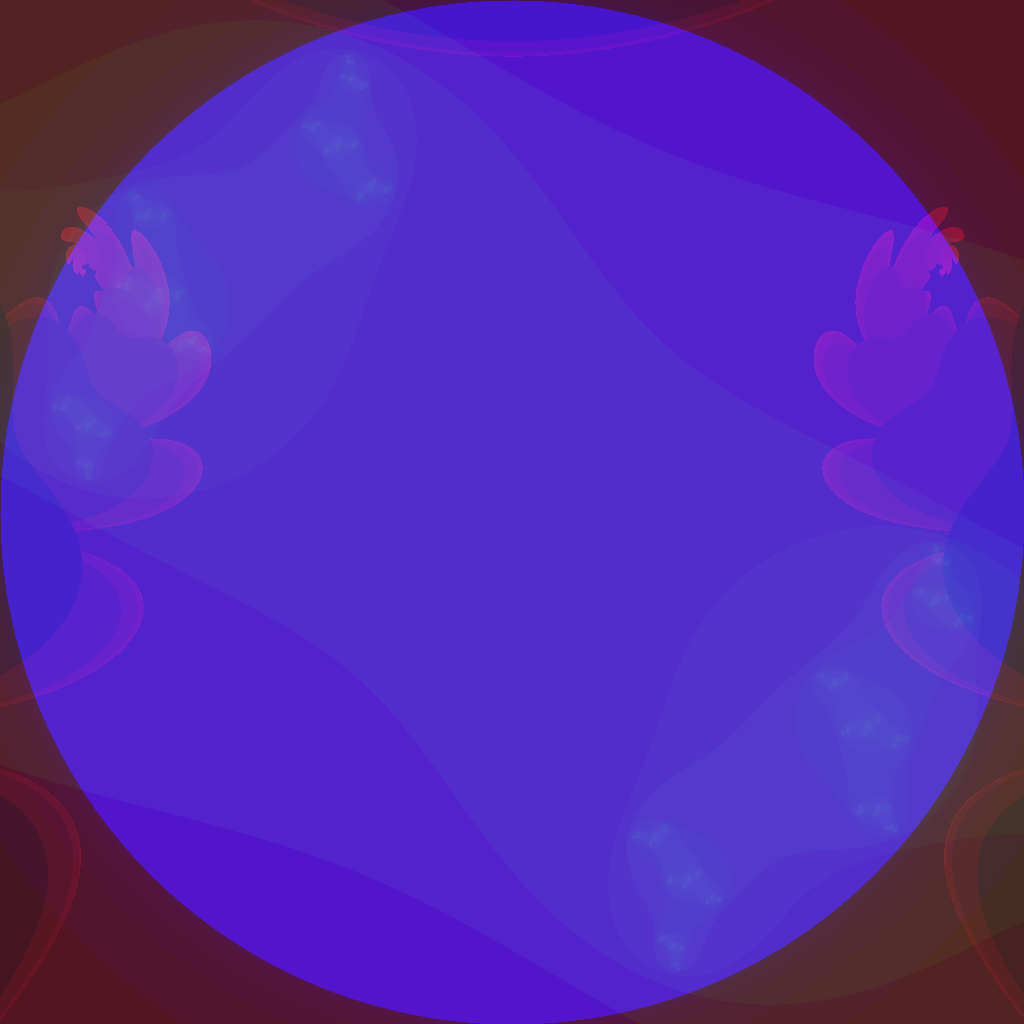
Whoops, something is missing. Obviously, these parameters have to be static or else you have some weird results (but funny, maybe I'll investigate a bit later if I find something interesting).
So here we are, with only green and blue channels:
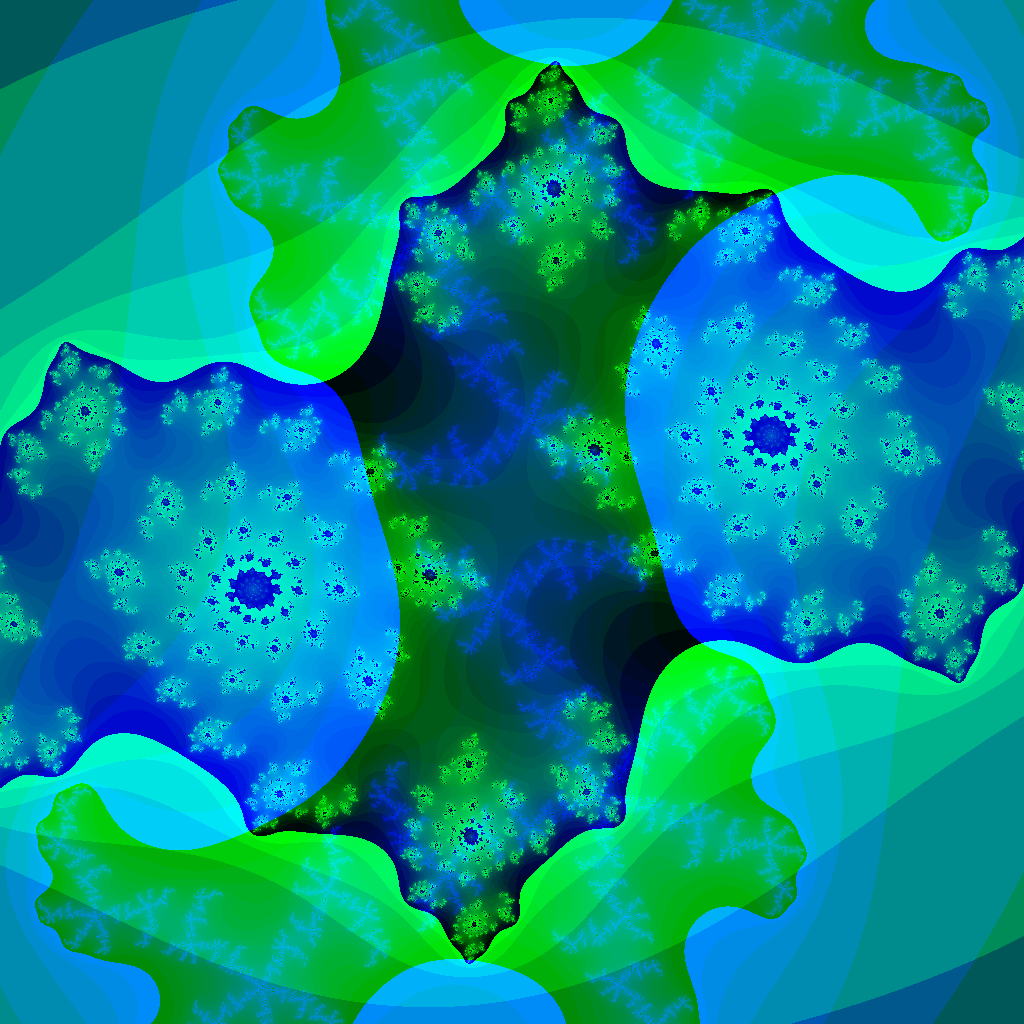
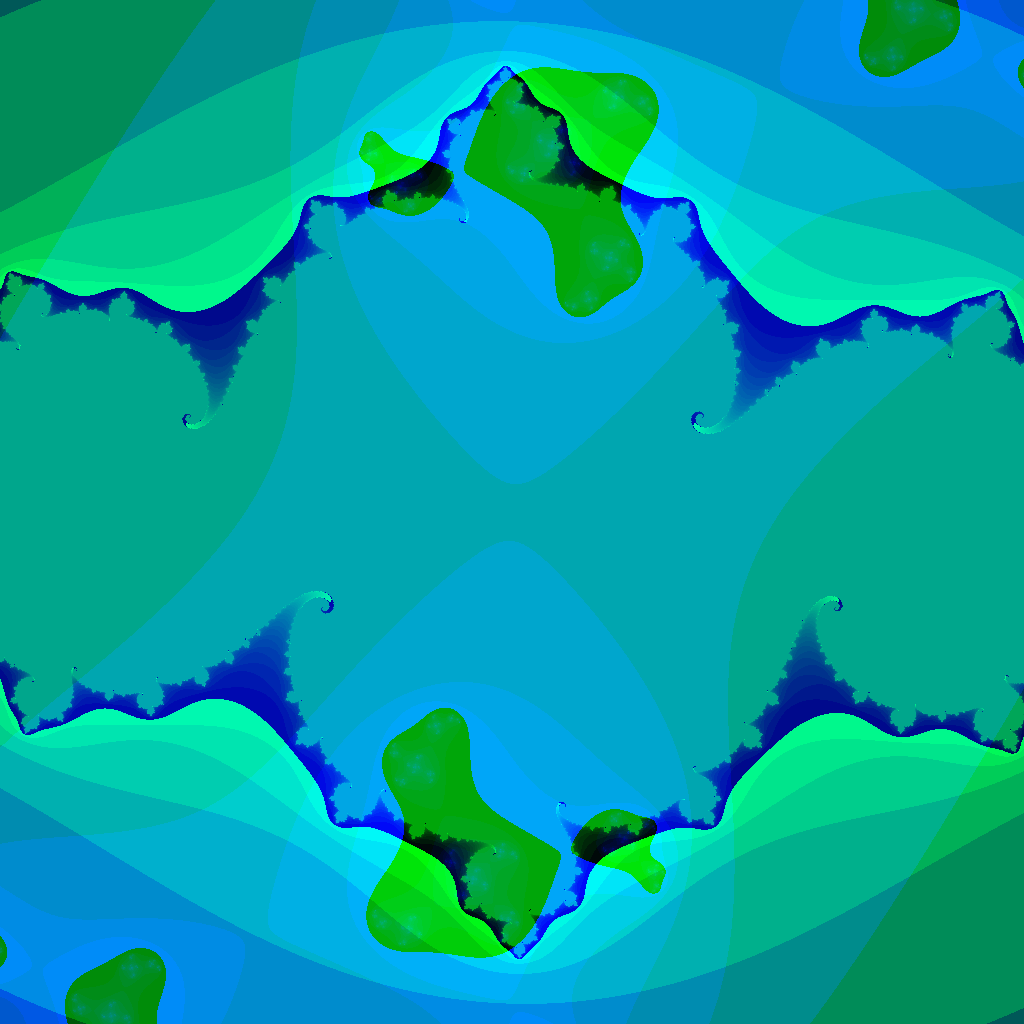
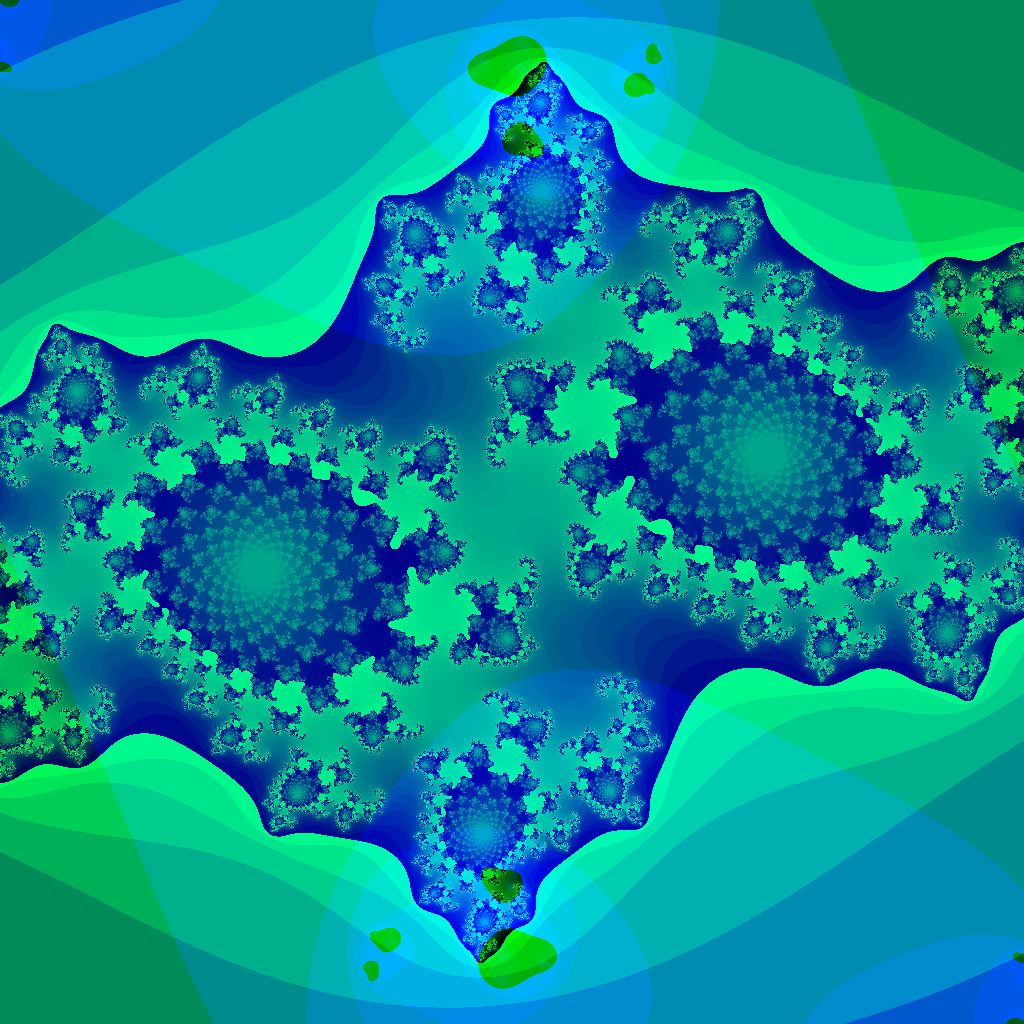
Now let's add a simple red pattern to fill the void. Not really imaginative, but I'm not a graphic programer ... yet :-)

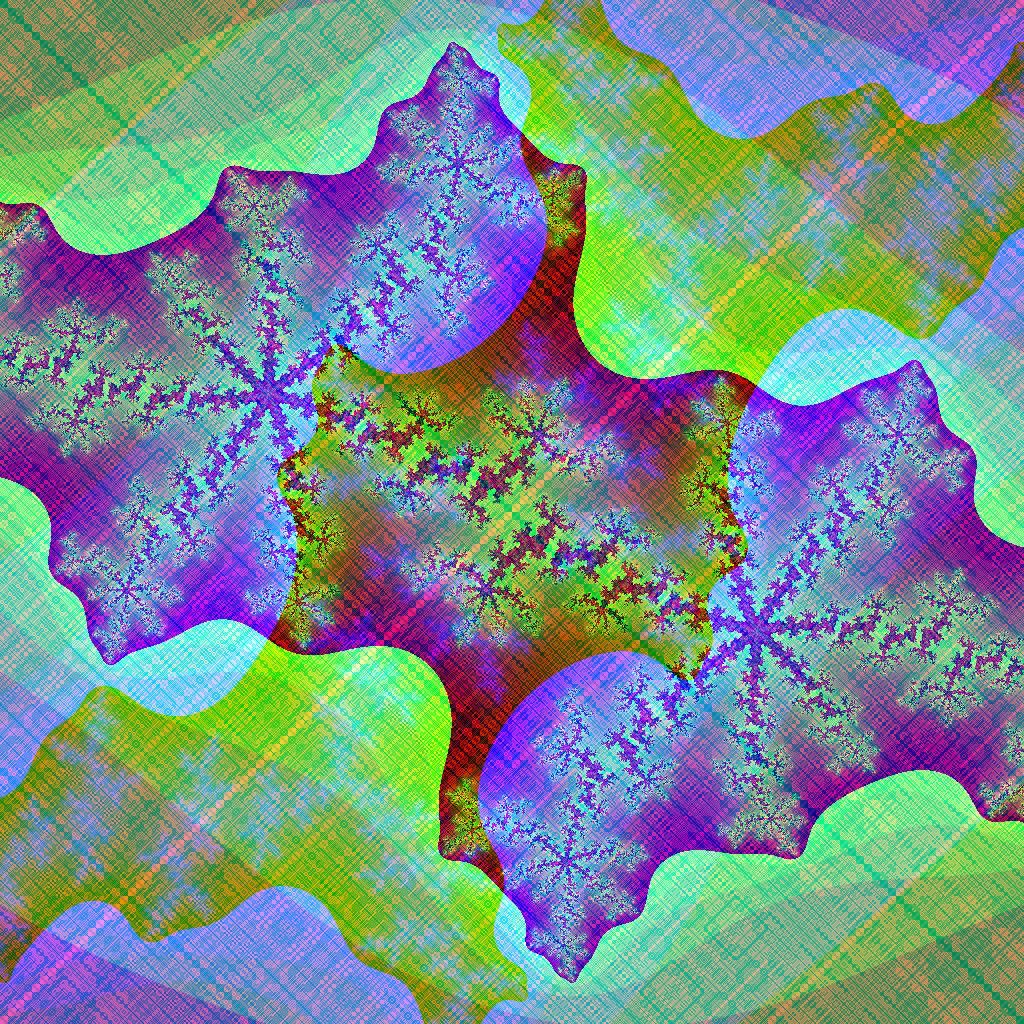
And finally the new code with random parameters:
unsigned short red_fn(int i, int j){
static int n=1;if(n){--n;srand(time(0));}
#define R rand()/16384.-1
#define S static float r=R,k=R;float
return _cb(i^j);}
unsigned short green_fn(int i, int j){
#define D(x) (x-DIM/2.)/(DIM/2.),
S x=D(i)y=D(j)X,Y;int n=0;while(n++<200&&(X=x)*x+(Y=y)*y<4){x=X*X-Y*Y+r;y=2*X*Y+k;}return log(n)*512;}
unsigned short blue_fn(int i, int j){
S x=D(i)y=D(j)X,Y;int n=0;while(n++<200&&(X=x)*x+(Y=y)*y<4){x=X*X-Y*Y+r;y=2*X*Y+k;}return log(n)*512;}
There's still room left now ...
